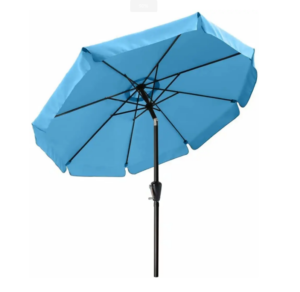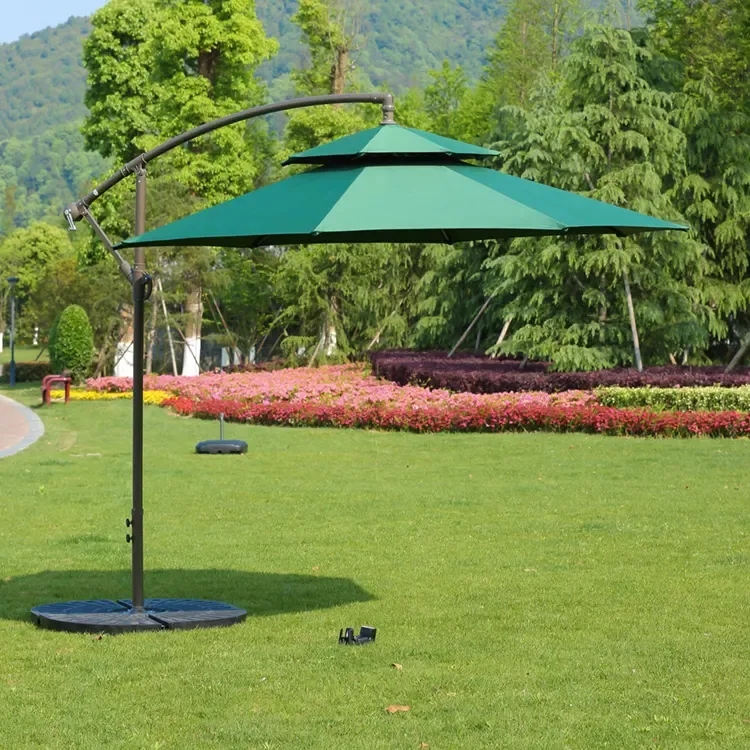
When selecting an umbrella for your outdoor space, you might wonder whether all umbrella poles are the same size. The size of the umbrella pole can significantly impact the stability, functionality, and overall appearance of your umbrella. In this blog, we will explore the various sizes of umbrella poles, their effects on umbrella performance, and how to choose the right size for your needs.
Umbrella poles come in different sizes, primarily determined by the diameter and length. These dimensions vary depending on the type of umbrella and its intended use.
| Dimension | Description | Typical Sizes |
|---|---|---|
| Diameter | The thickness of the pole, impacting stability and strength. | 1.5 to 2.5 inches (38 to 63 mm) |
| Length | The height of the pole, affecting how the umbrella is positioned. | 7 to 10 feet (2.1 to 3 meters) |

Different types of umbrellas have poles designed to meet specific needs:
Beach Umbrellas: Generally feature thinner, lighter poles designed for easy transport and insertion into sand. Common diameters range from 1.5 to 1.8 inches (38 to 46 mm).
Patio Umbrellas: Typically have thicker, sturdier poles to support larger canopies. Diameters often range from 1.8 to 2.5 inches (46 to 63 mm).
Market Umbrellas: Designed for commercial use, these umbrellas have robust poles to withstand frequent use and larger canopies. The diameter is usually around 2 inches (50 mm) or more.
Cantilever Umbrellas: Feature an offset pole design for overhead coverage without central support. These poles are usually larger in diameter, ranging from 2 to 2.5 inches (50 to 63 mm).
| Factor | Impact of Pole Size |
|---|---|
| Stability | Thicker poles provide better stability and support for larger canopies. |
| Portability | Thinner poles are lighter and easier to transport, ideal for beach use. |
| Durability | Larger poles are generally more durable and can handle harsher weather conditions. |
| Compatibility | The size of the pole must match the hole in the umbrella base or table. |

When selecting an umbrella, consider the following factors:
Purpose: Determine the primary use of your umbrella. For beach or portable use, opt for a lighter pole with a smaller diameter. For patio or garden use, a thicker pole provides better support.
Canopy Size: Larger canopies require sturdier poles to ensure stability. Match the pole diameter to the size of the umbrella canopy.
Base Compatibility: Ensure the pole diameter fits the hole in your umbrella base or table. Measure the hole and check the pole size specifications before purchasing.
Weather Conditions: Consider the local weather conditions. In areas with strong winds, a thicker pole offers better resistance.
If you find that your current umbrella pole does not meet your needs, consider these options:
Adjustable Poles: Some umbrellas come with adjustable poles that allow you to change the height or position of the umbrella.
Replacement Poles: If you need a different size, you can often purchase replacement poles compatible with your umbrella’s design.
Not all umbrella poles are the same size. Understanding the different sizes and types of umbrella poles helps you choose the right one for your specific needs. Whether for a beach, patio, or commercial space, selecting the appropriate pole size ensures better stability, durability, and functionality. By considering factors such as purpose, canopy size, and compatibility, you can make an informed decision and enjoy optimal performance from your umbrella.